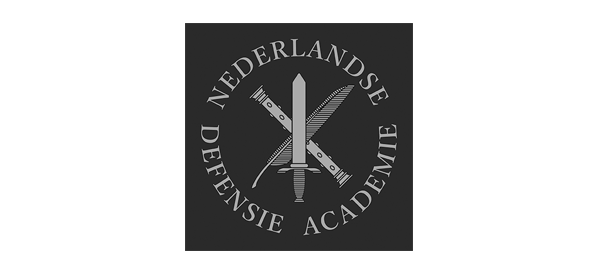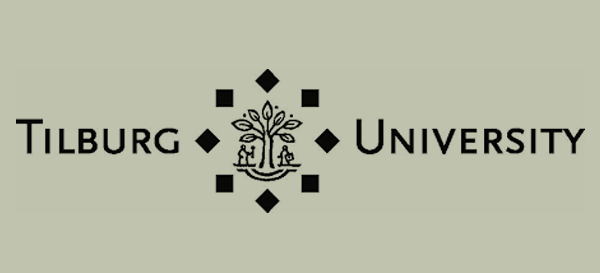Consortium
The ELSA Lab Defence is developing a future-proof, independent, and consultative ecosystem for the responsible use of AI within the defence domain. This will enable us to know in the future under what circumstances an AI technology-based application is acceptable or not. This ecosystem consist of multidisciplinary partners. Below you find a description of each involved partners and their role within our developing ecosystem.

TNO uses its knowledge and technology to create innovations for people who are safeguarding our peace and security on a daily basis in the Netherlands and abroad. TNO has extensive knowledge in the field of human-machine teaming and on assessing ethical, legal, and societal implications of artificial intelligence systems.
Within this project, TNO will be responsible for coordinating the experiments, including monitoring general progress, securing results, and identifying new experiments and reaching out to collaboration partners and stakeholders.
Jurriaan van Diggelen is a senior research scientist, leading the Human-Machine Teaming research program for Dutch MoD, and chairing the NATO research group on meaningful human control.
Martijn van Emmerik is a senior project manager and he has extensive experience in managing national and international scientific projects and is responsible for monitoring general progress of ELSA Lab defence.
Marlijn Heijnen has a background in international affairs and data science and her current work focuses on responsible AI implementation within the Defence context. She is deputy project manager of the lab.

Delft University of Technology is consistently ranked as one of the best universities in The Netherlands, and as of 2020 it is ranked by QS World University Rankings among the top 15 engineering and technology universities in the world.
Jeroen van den Hoven is professor of Ethics and Technology at TUD. He is a permanent member of the European Group on Ethics (EGE) to the European Commission. In 2017 he was knighted in the Order of the Lion of The Netherlands for his outstanding scientific merits.
Mark Neerincx is professor in Human-Centered Computing at the Delft University of Technology, and Principal Scientist at TNO Department of Human-Machine Teaming.
Filippo Santoni de Sio is an Associate Professor in Ethics of Technology at the Section Ethics/Philosophy of Technology of TU Delft, and an adjunct professor in Ethics of Transportation at the Politecnico di Milano.

Within the ELSA Lab Defence, Leiden University will focus on the legal aspects of AI in defence, particularly with regard to privacy and data protection law, liability law, AI law, intellectual property law, and (in relation to drones) air and space law. From an ethical perspective, e-Law will bring in expertise on value-sensitive design (most notable privacy by design), discrimination-aware data mining, and societal & ethical impact assessments.
Bart Custers is professor of Law and Data Science and head of e-Law, the Center for Law and Digital Technologies at Leiden University. He is an expert in law and digital technologies, including topics like profiling, big data, privacy, discrimination, cybercrime, technology in policing, and artificial intelligence.
Benjamyn Scott is assistant professor and has a strong background in developing and emerging technologies, where he has concentrated on unmanned aircraft systems (remotely piloted and autonomously flown), urban air mobility (eVTOL, societal acceptance and multimodality), cybersecurity, artificial intelligence, and unmanned traffic management.
Henning Lahmann is assistant professor of Law and Data Science at e-Law, the Center for Law and Digital Technologies at Leiden University. His work focuses on cyber security and transnational security, disinformation and information operations, human and civil rights, privacy and data protection, internet governance, and the use of AI in conflict situation.

The Asser Institute will contribute to the ELSA Lab Defence in the areas of public international law applicable to military AI, interdisciplinary approaches to military AI, and context-based solutions. Its expertise builds upon ongoing research carried out in the DILEMA project (Designing International Law and Ethics into Military AI, 2020-2024), which explores legal, ethical, and technical approaches on safeguarding human agency over military AI.
Berenice Boutin is a senior researcher in international law at the Asser Institute. Her work focuses on international responsibility, security, and new technologies. She is project leader of the DILEMA project.
Marta Bo is a senior researcher at the Asser Institute. Her research focuses on international and transnational criminal law, law of the sea and human rights, artificial intelligence and criminal responsibility, and autonomous weapons.
Jonathan Kwik is a researcher at the Asser Institute attached to the ELSA Lab project. His specialisation is in the laws governing the conduct of hostilities and artificial intelligence (AI). He has published extensively in the fields of international humanitarian law, targeting law, AI modelling, (international) criminal responsibility and post-conflict reconciliation.

The Hague University of Applied Sciences (HHS) offers higher education courses and conducts practice-based research. The university has an international character.
HHS will be the main institution in charge of designing, conducting, and analysing opinion surveys on public perception of military use of AI throughout the project. The survey result reports will enable the project group to observe the evolving public opinion.
Ashley Longman is a senior lecturer and researcher at HHS. He has a background in International Public Management and Policy (Public Administration).

The Netherlands Defence Academy (NLDA) is a military academy that combines the institutes for general officer training for all branches of the armed forces at all levels. NLDA also conducts scientific research for knowledge development, innovation, and policy support. Where possible and meaningful, NLDA collaborates with civilian universities and colleges.
Roy Lindelauf works at the Netherlands Defence Academy (NLDA), a specialty academy of the Ministry of Defence, The Netherlands. His research focuses on quantitative intelligence analysis, game theory, network analysis, data mining and algorithms.

The Ministry of Defence (MoD) is responsible for the armed forces of the Netherlands and Veterans Affairs.
The MoD in its role as user and main beneficiary will support the consortium by providing a member for the NWO supervisory Committee, the consortiums Advisory Board, and will support the work packages with domain knowledge and advise on request and within means and security and IP restrictions.
Merle Zwiers is Chief Data Officer at the Ministry of Defence. She has a background in social geography and data science and has extensive experience with coordinating and conducting research.

HCSS conducts research on geopolitical and defence & security issues for governments, international institutions, and businesses. Their research is characterized by a data driven, multidisciplinary approach, specialist knowledge, and a strategic orientation.
HCSS will take part in the consortiums Advisory Board and will support the work packages with domain knowledge and advise.
Tim Sweijs is the Director of Research at The Hague Centre for Strategic Studies and a Senior Research Fellow at the Netherlands’ War Studies Research Centre.

HSD provides access to knowledge, innovation, market, finance, and talent. Over 300 companies, governmental institutions, and knowledge institutes work together to accelerate innovative solutions in the broad security domain. AI, Data and Intelligence, Smart Secure Societies and Cybersecurity & Resilience, Access to Knowledge, Innovation and Market.
HSD will take part in the consortiums Advisory Board and will support the work packages with domain knowledge and advise.
Paul Coumans works as international program coordinator and innovation liaison at Security Delta HSD, Europe’s largest security ecosystem.

Tilburg University is an inclusive and engaged academic community, that is dedicated to sustainable broad prosperity for all. Their education and research commits itself to themes such as mental and preventive healthcare, an inclusive labour market, the energy transition, and digitalisation.
Marie Postma is an Associate Professor at the Tilburg School of Humanities and Digital Sciences at Tilburg University, as well as Head of the Department of Cognitive Science & Artificial Intelligence.
